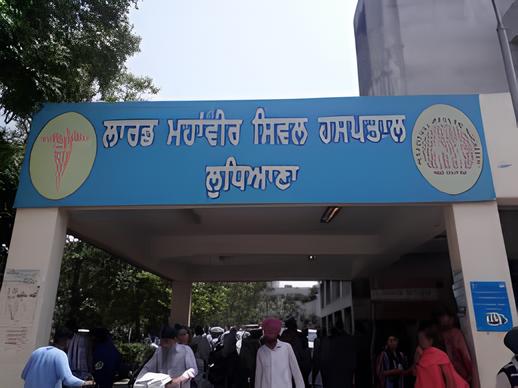In the fast-evolving Indian IT sector, Infosys has always been a bellwether company, symbolizing stability, innovation, and strong corporate governance. Recently, Infosys took a significant step by announcing its largest-ever share buyback worth ₹18,000 crore. This bold move is not just about numbers; it reflects the company’s confidence in its long-term growth, financial health, and commitment to rewarding its shareholders.
This article provides a detailed overview of the Infosys share buyback, its impact on investors, and what it signals for the company’s future trajectory.
What Is a Share Buyback?
Before delving into Infosys’s specific buyback, it’s essential to understand the concept of a share buyback, also known as a share repurchase. Simply put, a company buys back its own shares from the stock market or shareholders, reducing the total number of outstanding shares.
This action typically serves multiple purposes:
-
Return cash to shareholders by offering to buy shares at a premium.
-
Improve financial metrics, such as Earnings Per Share (EPS), since fewer shares remain outstanding.
-
Signal confidence from the management in the company’s intrinsic value.
-
Optimize capital structure by utilizing excess cash reserves efficiently.
Key Details of Infosys’s ₹18,000 Crore Buyback
On September 11, 2025, Infosys officially announced its decision to buy back shares worth ₹18,000 crore (approximately $2.04 billion). Here are the critical specifics:
-
Buyback Size: ₹18,000 crore, the largest in the company’s history.
-
Buyback Price: ₹1,800 per share.
-
Shares to Be Repurchased: Approximately 10 crore shares.
-
Premium: The buyback price is about 19% higher than the closing market price on September 11, 2025.
-
Buyback Route: Tender offer method, where eligible shareholders can offer their shares back to the company at the predetermined price.
-
Percentage of Equity: This represents roughly 2.41% of the company’s total equity capital.
-
Regulatory Compliance: The buyback amount is well within the limits prescribed under Indian regulations, ensuring that the company’s capital structure remains healthy.
Why Did Infosys Opt for This Mega Buyback?
Infosys has been consistently profitable, generating healthy cash flows and maintaining a strong balance sheet. Despite experiencing some revenue growth challenges in the recent fiscal year, the management remains optimistic about the company’s future.
Several reasons underline this buyback decision:
1. Returning Value to Shareholders
Infosys has a long history of returning value to its investors via dividends and buybacks. In the current environment, where global IT services demand faces competition and macroeconomic uncertainties, buybacks are a direct way to reward shareholders by offering a premium on their shares.
2. Optimizing Capital Allocation
With massive cash reserves accumulated over the years, Infosys aims to use its capital effectively. A buyback helps reduce excess cash on the balance sheet, preventing idle funds that could otherwise impact shareholder returns.
3. Confidence in Long-Term Prospects
Buying back shares signals that the management believes the current stock price undervalues the company. It’s a vote of confidence in Infosys’s ability to maintain growth, generate profits, and sustain its competitive edge in the IT industry.
4. Improving Key Financial Metrics
By reducing the total number of shares outstanding, the company’s earnings per share (EPS) typically improve, which could positively influence the stock price and investor perception.
Historical Context: How Does This Buyback Compare?
Infosys’s ₹18,000 crore buyback dwarfs its previous repurchase programs:
-
2017: ₹13,000 crore
-
2019: ₹8,260 crore
-
2022: ₹9,300 crore
-
2022-23: ₹9,300 crore
This new buyback almost doubles the size of its earlier largest buyback, reflecting both Infosys’s growing scale and its strategic priorities in 2025.
Market Reaction to the Buyback Announcement
After the buyback announcement, Infosys shares showed a mixed response:
-
In the U.S. markets, Infosys’s ADR (American Depository Receipt) shares experienced a slight increase of 0.03%, closing at $16.99.
-
On the National Stock Exchange (NSE) and Bombay Stock Exchange (BSE) in India, the stock price declined about 1.5%, closing at ₹1,509.7.
Such fluctuations are normal around buyback announcements as investors digest the implications. Some shareholders might prefer to sell shares and realize a premium, while others might hold on, anticipating long-term gains.
What Does the Buyback Mean for Infosys Shareholders?
For the approximately 26 lakh (2.6 million) shareholders of Infosys, this buyback is a significant event with multiple implications:
1. Opportunity to Realize Gains
Shareholders have the option to tender their shares at ₹1,800 each, a 19% premium over recent market prices. This premium offers an attractive exit opportunity, especially for those looking to book profits or needing liquidity.
2. Impact on Remaining Shares
Post-buyback, the reduction in total shares outstanding could lead to higher EPS and possibly improved stock performance over time, benefiting shareholders who continue to hold.
3. Considerations for Participation
-
Long-term investors confident in Infosys’s fundamentals may prefer not to tender their shares, anticipating better returns in the future.
-
Short-term investors or those seeking immediate gains might find the premium buyback price appealing.
The Regulatory and Procedural Path Ahead
Infosys must seek approval from its shareholders through a postal ballot or at the general meeting. Following approval:
-
The company will announce the record date to determine eligible shareholders.
-
The tender offer will remain open for a specified period during which shareholders can submit their shares.
-
The company will complete the buyback within the stipulated regulatory timeframe.
Broader Industry Implications
Infosys’s buyback could have a ripple effect across the Indian IT sector:
-
Other large IT companies may consider similar buybacks, especially those with strong cash positions.
-
It signals confidence in the Indian IT sector’s long-term potential despite near-term challenges.
-
The move reflects growing maturity in capital allocation strategies among Indian corporates.
Expert Opinions and Analyst Views
Financial analysts view this buyback as a positive step for Infosys. According to market experts:
-
The buyback highlights management’s prudent capital management.
-
It may help stabilize or improve the stock price in a volatile market.
-
The move aligns with global trends where tech companies return cash to shareholders amid uncertain macroeconomic conditions.
However, some caution that investors should consider broader business fundamentals and industry trends before making decisions.
Final Thoughts: Is This a Good Time to Invest in Infosys?
Infosys’s ₹18,000 crore share buyback is a powerful signal of the company’s strength and shareholder-friendly approach. For investors, it presents both an opportunity and a decision point.
-
If you already hold Infosys shares, evaluate whether to participate in the buyback or hold for future growth.
-
New investors should consider Infosys’s overall financial health, industry position, and growth outlook alongside the buyback benefits.
Ultimately, the buyback underscores Infosys’s commitment to enhancing shareholder value while navigating the dynamic IT landscape.
Stay Updated
To make informed decisions, investors should stay tuned to Infosys’s official announcements and market developments. Keep an eye on:
-
Shareholder approvals and tender offer timelines.
-
Quarterly financial results and future guidance.
-
Industry trends and competitive landscape shifts.




